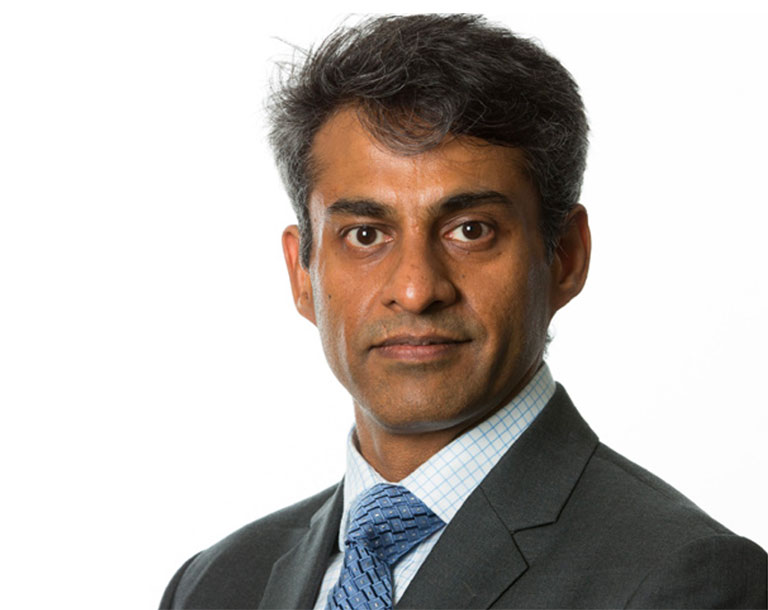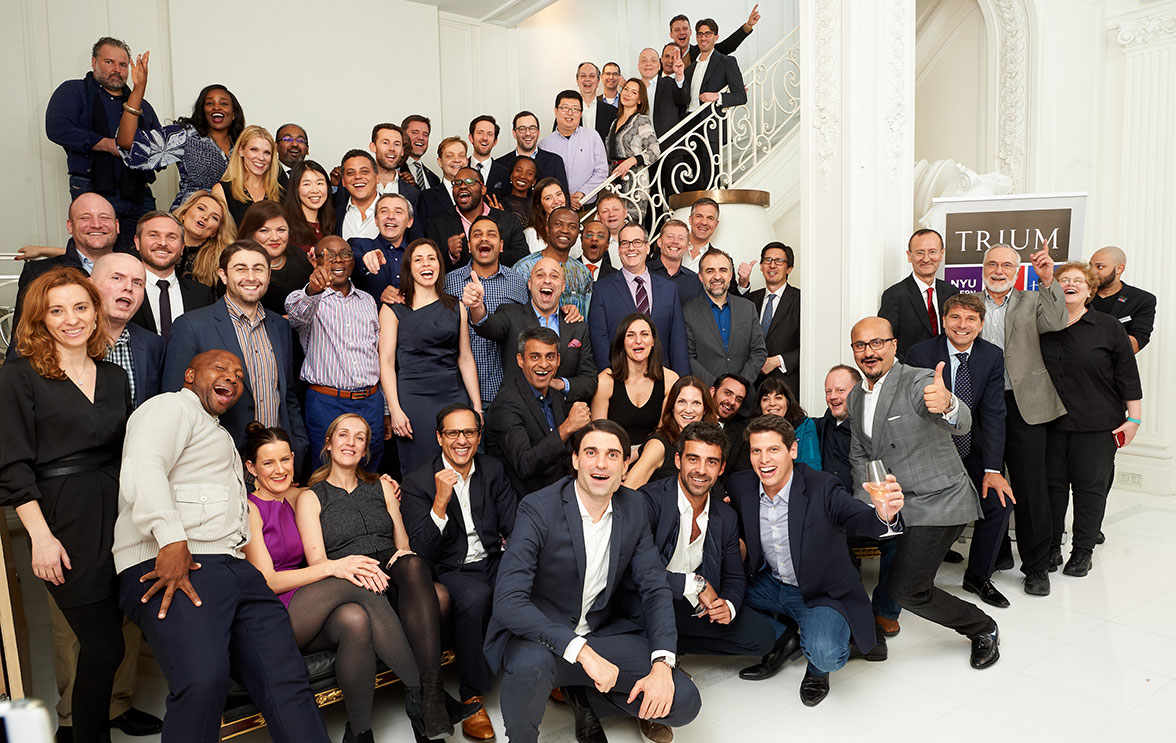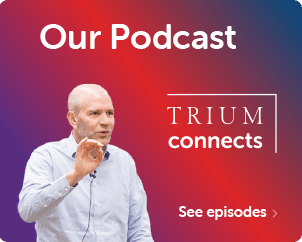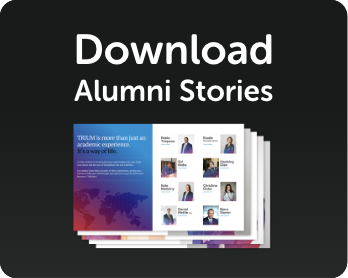

Sid Kedia
Sid Kedia, Chief Executive Officer, NODWIN Gaming (Class of 2018)
“I have a single-minded belief that everything in life is mind over matter and with perseverance and patience, nothing is unachievable.”
Sid Kedia developed this personal motto when he was only thirteen years old and diagnosed with Juvenile Rheumatoid Arthritis, and doctors told him he would never be able to run or indulge in any strenuous physical activity ever again. After years of pain, hard work, and setbacks, Sid proved them wrong and became an avid mountaineer and marathoner.
Sid brings the same attitude to his professional life, as well. “The harder the problem, the more determined I am to find a solution. People close to me often joke that the best way to get me to do something is to tell me that it is impossible for me to do,” he says and adds that to him, success is more like a series of milestones and never a destination.
This determined attitude has given Sid the fortitude to take on various risks in his career, like when he joined Venture Infotek (VI) in 2003, one of the first fin-tech startups, despite being at the top of his game at General Electric, where his performance was ranked in the top 10%.
He didn’t shy away from challenges in the career that followed, and in 2019 took his skills to the booming industry of gaming and esports: first as Chief Strategy Office at Viacom, where he was entrusted to build esports as a division in India, and currently as CEO of NODWIN gaming, South Asia’s largest esports company.
Sid continues to move the goal post of success for himself in order to avoid stagnation, and this was his motivation to join TRIUM, as he thought it was time to re-skill himself for the next twenty years of his career.
He recently spoke with TRIUM about how the program’s global experience gives students a once-in-a-lifetime perspective on geopolitical and economic opportunities and crises, how TRIUM’s module at Singularity University prepared him to navigate the disruptive, accelerating growth of the esports and gaming industry, and why his cohort made him the person he is today.
Why did you choose TRIUM among other global programs?
There were three factors that made me choose TRIUM. First, the experience and age profile of TRIUM cohorts was more aligned with the stage of life I was in. Second, the program brought together three of the best schools in the world and hence gave it a very diverse and rich curriculum. Last, the Capstone was another big draw for me as at that time I was also thinking of starting my entrepreneurial journey and the capstone was an exceptionally rich opportunity to put learned theory into practice and to work cohesively with a diverse and geographically spread-out team members.
Your career has spanned several countries— from Asia to the US—in sectors that continues to dominate business agendas. How has TRIUM’s foot-on-the-ground approach to learning in the six international modules impacted the way you approach your work?
The on-ground approach to learning in the six international modules is the biggest strength of the TRIUM program. While initially it seemed really daunting to travel to a new location every few months and be away from work and family in a pressure-cooker environment, it also turned out to be the biggest asset of the program. Besides classroom learning from some of the best minds in the world, the on-ground approach taught me three essentials.
First, there is no substitute to friends and networks that you build for life when you spend a significant time learning, debating, partying and basically having a ball of a time together.
Second, no matter how good one thinks one is at time management, an environment like TRIUM forces you to be better at managing time as while school and fun is happening at its crazy pace, work back home doesn’t stop and family needs their time as well.
Last, just the sheer diversity of courses that one goes through in a day forces one to get out of their comfort zone and not only absorb but excel at all of them. This is what is mirrored in senior management roles across companies where one keeps going from one unrelated problem to another and needs to stay on top of it every day.
Your field now is in gaming and esports, which is a sunrise industry—and one that had a massive boost during the pandemic. Since 2014, the number of esports viewers has grown 163% to a forecasted 495 million this year.* *Statista What about the field excites you? Where do you see it going in the next decade?
Esports is the future of sports and entertainment globally. Esports is to Gen Z and Gen Alpha what traditional sports were to baby boomers and Gen X. Entertainment is morphing from being a passive source of entertainment to a more involved and interactive form of entertainment, and esports sits on the pinnacle of this upcoming phenomenon. I see esports disrupting both sports and entertainment in the years to come and my prediction is that esports is going to rule entertainment over the next couple of decades. With the increasing advancements in the world of AR and VR, esports will get a shot in the arm as these technologies get more democratized over time.
How does TRIUM’s focus on the disruptive nature of technological change and innovation prepare you to navigate the growing field of esports and gaming?
The defining moment of Module 2 was the visit to Singularity University. The first thought that came to my mind a few hours into the first day at Singularity was: I am living in Dark Age. There is so much innovation and advancement happening in the world, and so much of what I experienced at Singularity was largely unknown to me. While technology was thrown in the other modules, conducting Module 2 in California is the best thing that TRIUM started. There is something in the air of that city that inspires innovative, disruptive thinking.
Even in my day-to-day functioning, I have a much better appreciation of the power of technology-led innovation and now I question the return on investment on any tech investment decision much more positively than before.
Can you tell us more about the value your cohort has added to your experience?
One of the best experiences of this program is the diversity of the cohort that it puts together. Before this program I put too much premium on relevance of experience and familiarity of culture as the key attributes to problem solving and recipe for high-performing teams. This program was an eye-opener for me, as I learned more from an oil rig engineer and a specialty chemical salesperson than I did from a lot of my colleagues at work with their years of experience in the same industry as me.
The cohort taught me that having an open mind and absorbing divergent points of view leads to better collaboration and the quality of output is much higher. Also, this cohort was the perfect antithesis to group think, something we have always been cautioned against. I am the person I am post this program because of my cohort—my tribe.
What return on investment has the program given you, or how do you anticipate it will in the future?
At the time of joining the program, the return-on-investment metric in my mind was – ‘a bigger and better job with higher pay’. However, the program and the years after that has changed my perspective. The return on investment for me is the friends and network that I have built around the world; the various hidden truths I discovered about myself by being on this program; and the vast knowledge that I have gained, ranging from geopolitics to valuation to Marketing to Organization development.
While I am sure that jobs and pay raises can be attributed to this program, for me my biggest return on investment is that I am a more wholesome individual and professional with a global group of trusted friends.
How would you describe your TRIUM experience in three words?
Exhilarating. Empowering. Enriching.







